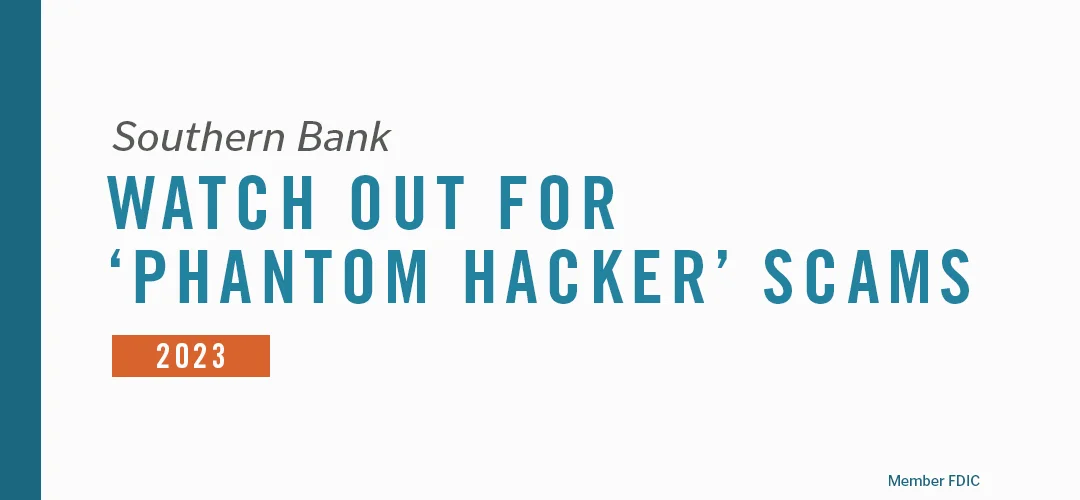
No one wants to spend the holidays cleaning up a financial mess from a scam, and this year one category is causing some concern – “Phantom Hacker” scams. According to the FBI, their Internet Crime Complaint Center fielded around 19,000 reports of these scams in the first six months of 2023, with $542 million in losses this year so far.
According to the agency, this type of scam involves three steps where scammers impersonate tech support, bank personnel, and then government employees.
It starts with a scammer reaching out claiming to be a tech support representative and convincing the victim to download software that allows them remote access to the victim’s computer. They then use the access to look at bank accounts.
After that, the scammer will reach back out pretending to be a representative from the bank and claiming that there has a been a breach. They will instruct the victim to transfer money by wire or convert it to cryptocurrency – usually to an overseas bank account.
Oftentimes, another scammer will reach out claiming affiliation with a government agency and suggesting that the victim move the funds to a new alias account to protect it.
This scheme has led to massive losses for some, with one person having $99,000 stolen from them, according to Fox Business1. Scammers typically target retirement and savings that has built up over several years, which is why the FBI is trying to create awareness that could help people protect their assets.
How to avoid falling victim to “Phantom Hacker” scams
Awareness is key to avoiding being scammed. You should never download unknown software to your computer, especially if prompted by someone you’re unfamiliar with. If someone reaches out claiming to be from a bank, make sure the number lines up. If not, hang up and reach out to your bank with a familiar number. You should also avoid clicking on pop-ups and links within texts or emails from untrusted sources, or dialing phone numbers listed in them.
The FBI also notes that “the US Government will never request you send money to them via wire transfer, cryptocurrency or gift/prepaid cards.1”
Southern Bank will never reach out asking you to download software that allows us access to your computer, and we will never ask you to wire money elsewhere in order to protect your accounts. If someone reaches out claiming any of these things, call us immediately at (855) 452-7272.
If you’d like to read more about the FBI’s warning on “Phantom Hacker” scams, see the full story here.
1Aislinn Murphy, Watch out for ‘Phantom Hacker scams, FBI warns, foxbusiness.com, October 25, 2023, https://www.foxbusiness.com/personal-finance/watch-out-phanton-hacker-scams-fbi-warns